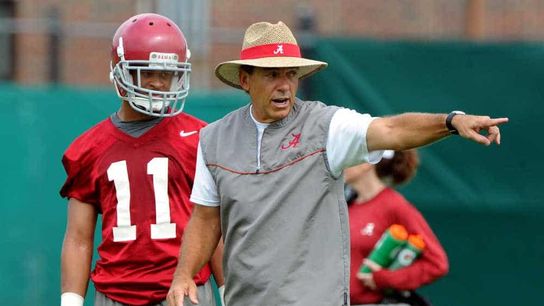Chris Low of ESPN wrote a behind-the-scenes piece on a day in the life of Nick Saban during fall camp. It's similar in tone to my piece following Seth Littrell for his first day of training camp, except involving a less talented writer. (Kidding.)
While the piece is full of interesting anecdotes and worth your time, Saban as a subject has been covered to death at this point. There is one thing, however, Low managed to find that I've never seen Saban say before. He's hinted around it, in fact his entire program bangs at this point, but I've never seen him put it in these words: it's the idea of the inner scoreboard.
I'll let Saban describe it for himself:
"Hey, I hate losing, and when we lose, I'm miserable,'' says Saban. "I have a harder time over relationship-type issues than I do actual losses on the field. It's tough to lose, but I'm technical when we lose. I'm not emotional, but technical in terms of what didn't we do. But I'm that way when we win.
"I know I get criticized for that. Everybody says, 'He just won 31-3. What's he complaining about?' But it goes back to the inner scoreboard versus the outer scoreboard. Which one is more important? If you're going to accomplish your goals, it's always the inner scoreboard."
The concept makes perfect sense. In eight of Alabama's 15 games last season, the Tide scored 30 or more while holding their opponent to 17 or fewer. Twelve of their wins came by 14 points or more.
So when 80 percent of your schedule is basically Usain Bolt running in a Division II track meet, how do you move the goal posts? How do you make your players as maniacally driven, as eternally unsatisfied as you are?
You create the concept of the inner scoreboard. When comparing yourself against others ceases to be a useful measuring stick, you compare yourself against yourself.
